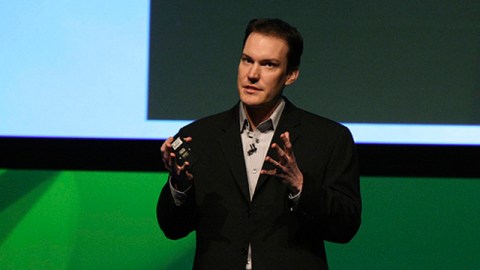Harvard’s Shawn Achor on How to Be Happier

“Positive psychology is a movement in social psychology which attempts to change the way that we think about humans,” explains positive psychology expert Shawn Achor. “Instead of focusing merely on the average, which is what we normally do in traditional psychology—we would find out what the average person is like, or how the average person responds—instead, what we look at are people who are up above the curve for some given dimension. Maybe that means that they are extremely energetic, that they are very happy, they’re very productive. And our goal is to find out why that is.”
In his Big Think interview, Achor, the author of “The Happiness Advantage,” tells us that, unlike regular psychology, which focuses on the average or below average, he studies people who are in some way exceptional, with the hopes of applying that knowledge to the greater population.
We can actually reprogram our brains to be happier, says Achor. “The brain is like a single processor in a computer.” Someone who is chronically negative or pessimistic is merely scanning first for the stresses and the hassles of life. And because the brain has finite resources, it cannot also scan for the positive elements. As a result, that person continuously reinforces his own negativity, causing himself to feel unhappy. The key to positive psychology is training the mind to divert its resources in a different way, finding ways to be optimistic and reasons to be grateful. After a period of about 21 days, the pattern of positive thinking can be retrained permanently in the brain, something Achor calls the Tetris Effect. And he tells us five ways that we can be happier by harnessing this Tetris Effect.
And you can not only change your own outlook but also influence that of the people around you, something that has always been known but never fully understood. It has to do with something called “mirror neurons” in your brain. “These mirror neurons are the reason why a yawn spreads at board meetings,” Achor explains. “Your brian, when you see something in your visual field, raises the likelihood of your experiencing that as well.” The same goes for positivity—as well as negativity—which is why leaders can have such a profound effect in business. “You can have one person on the room that is very expressive of their negativity and stress and it can spread to the entire team,” Achor says. He also gives several other pieces of advice about leveraging the happiness advantage in the business world.
Ultimately, Achor wants people to understand that happiness should not be kept on our cognitive horizons; it is not something that will magically appear after reaching a certain level in a company or a school. “Happiness is a work ethic,” Achor says. “It’s something that requires our brains to train just like an athlete has to train.”





